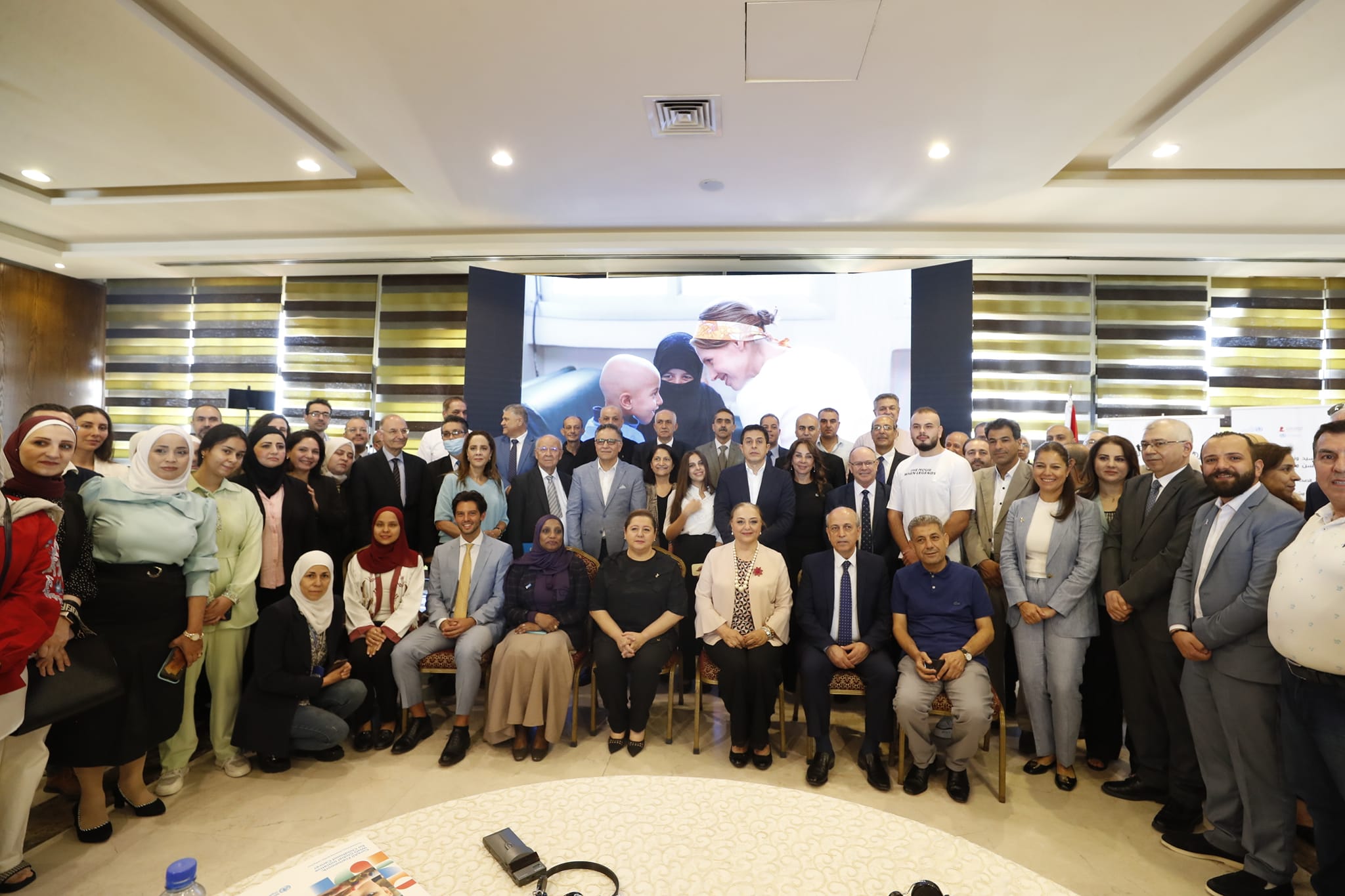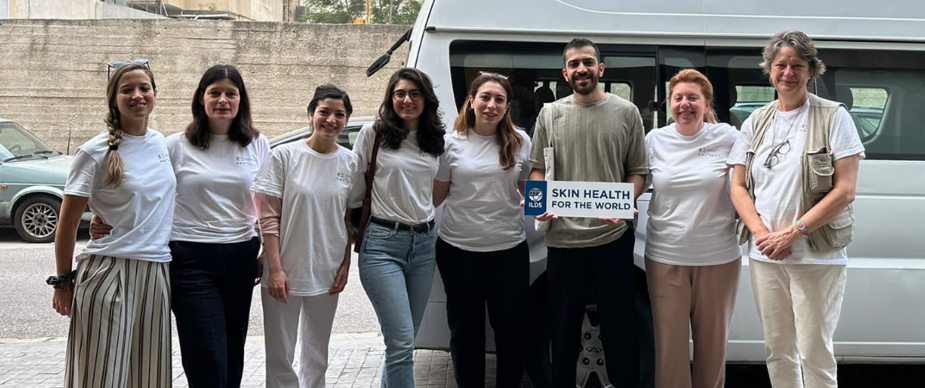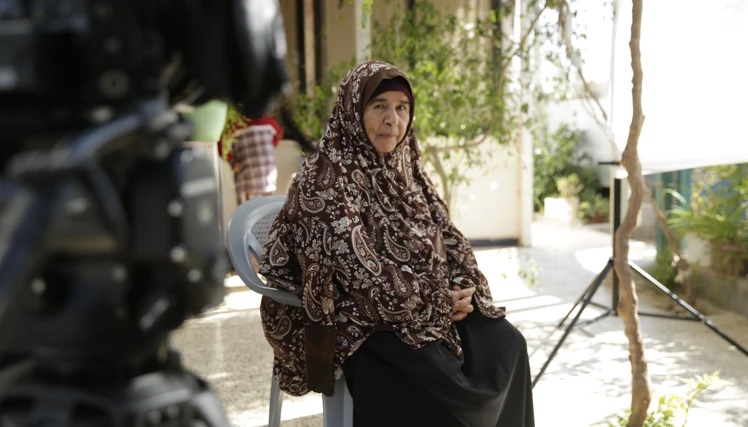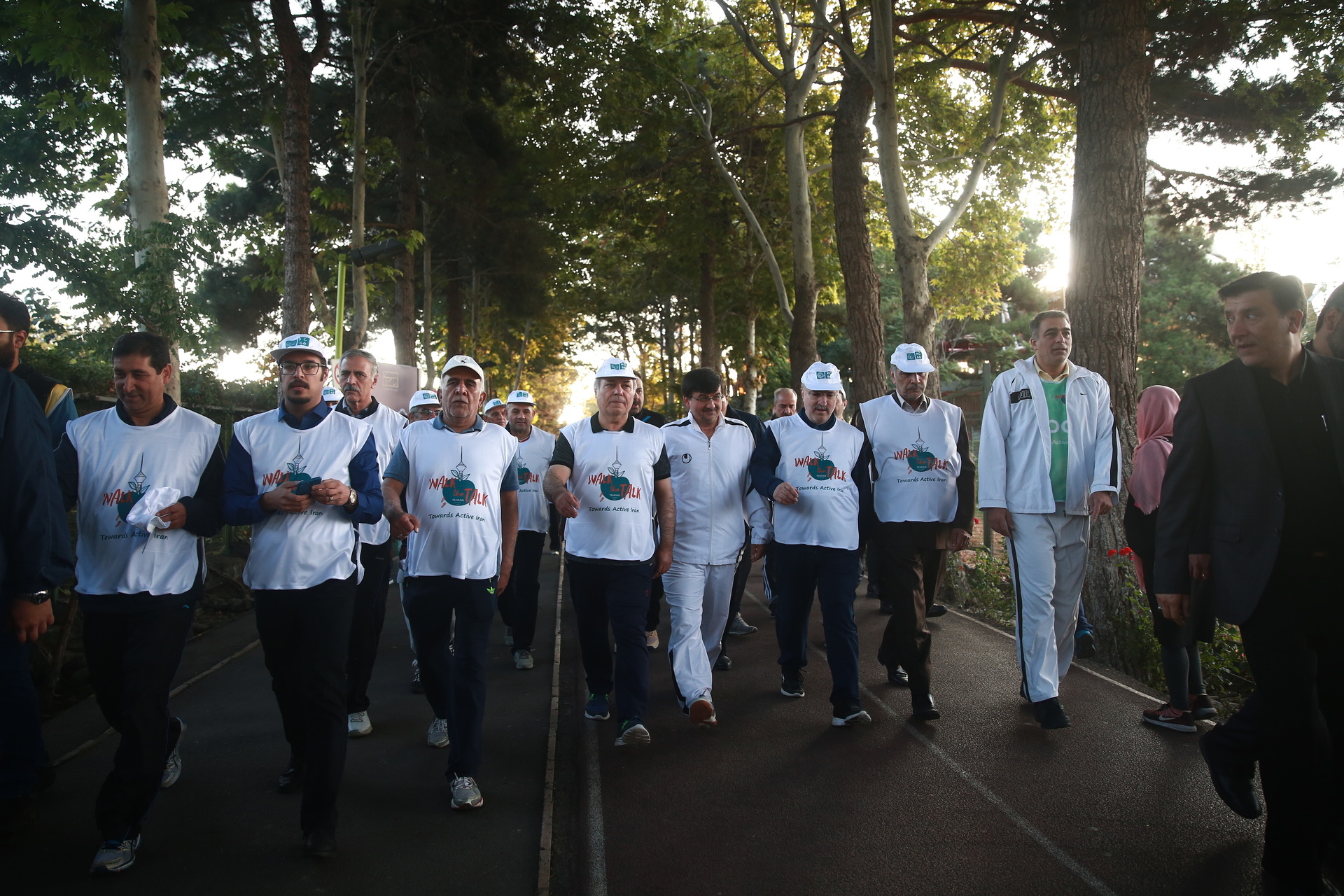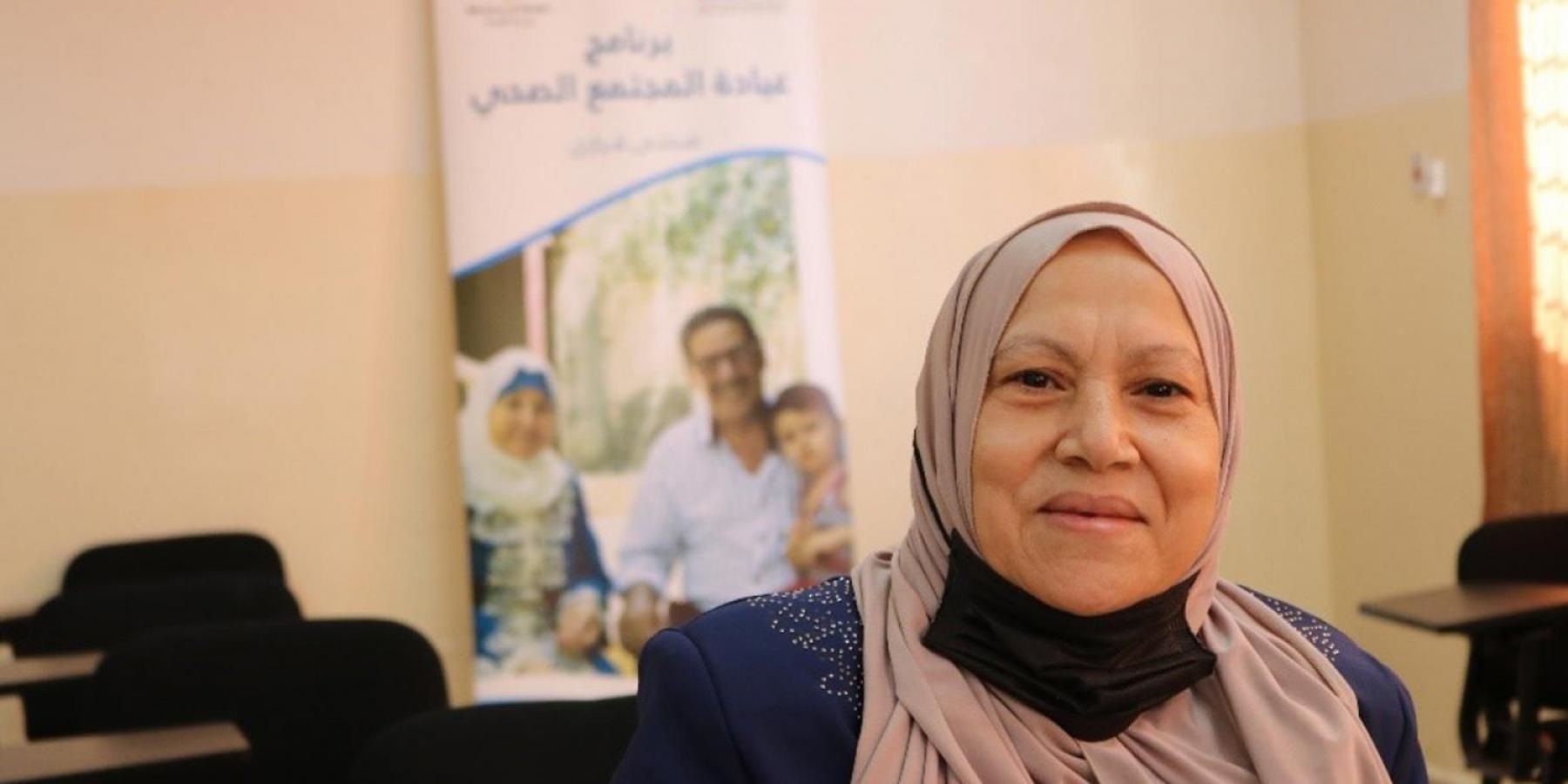Morocco’s 2011 constitution recognized the right to health care and since then, the country has been taking steps towards universal health coverage. The country is also addressing noncommunicable diseases (NCDs), with a focus on mother, infant and child nutrition. During the extensive actions to combat COVID-19, Morocco ensured continuity of care for cancer patients and worked to protect the mental health of its citizens.
 The Ministry of Health collaborated with Moroccan scientists, the United Nations Multi-Partner Trust Fund and WHO throughout the pandemic to deliver uninterrupted cancer care services.
The Ministry of Health collaborated with Moroccan scientists, the United Nations Multi-Partner Trust Fund and WHO throughout the pandemic to deliver uninterrupted cancer care services.
Since 2011, Morocco has revitalized its Baby-Friendly Hospital Initiative, alongside a raft of other measures to ensure the good health of mothers and babies.
The Ministry of Health implemented a set of initiatives to support the mental health of vulnerable groups and the general population during the pandemic.
Promoting breastfeeding
Since its new constitution was created in 2011, Morocco has revitalized the Baby-Friendly Hospital Initiative, which encourages exclusive breastfeeding for the first six months of a baby’s life. In addition to applying the clinical and management practices needed in hospitals to support and encourage mothers to breastfeed, other actions included:
- Training health professionals to provide infant and young child feeding counselling
- Implementing National Breastfeeding Promotion Week (La semaine nationale de promotion de l’allaitement maternel)
- Hosting awareness-raising sessions for mothers in health facilities
To further support breastfeeding, Morocco has followed WHO guidance and does not provide breastfed newborns with any food or fluid other than breast milk, unless medically indicated. Between 2011 and 2018, exclusive breastfeeding rates rose from 27.8% to 35%, and the median duration of breastfeeding increased from 14.3 to 17.4 months.
The country has also been tackling micronutrient deficiencies, particularly among children and women of childbearing age through a series of initiatives:
- Salt iodization was introduced in 1996. By the year 2000, 42% of homes were using iodized salt.
- Morocco launched a national micronutrient programme in 2000. Today, 80% of vegetable oil is fortified with vitamins A and D.
- By 2008, more than 75% of industrial soft wheat flour was fortified with iron and vitamins.
- Children under five years old receive at least one dose of both vitamin A and vitamin B. By 2018, the coverage for children across the country stood at 90% and 97% respectively.
Innovative solutions for delivering mental health services
The Moroccan Ministry of Health collaborated with a wide variety of organizations to protect the mental health of its citizens during the pandemic.
Helplines were an important tool for giving people support during lockdowns. At least nine helplines were set up, including:
- A helpline launched by the Moroccan Society of Clinical Psychologists and other similar organizations to support doctors, paramedics, patients with COVID-19 and their families, as well as people affected by lockdowns.
- A helpline created by the l’Association Marocain d’Addictologie (Moroccan Association for Addiction) providing medical and psychological assistance to substance users and their families.
- A helpline, set up by the National Federation for Mental Health, run by psychiatrists, psychologists and facilitators, all trained on the referral programme for people with mental disorders and their families.
Some health facilities, such as Le Centre Medico Psycho Social Moulay Rachid in Casablanca turned to telephone consultations as a way of continuing care. The virtual system that allowed the centre to operate remotely was created by The Peer Helpers Association for Psychosocial Rehabilitation and AFAK Association in Casablanca. Meanwhile, in-person support was offered by the University Psychiatric Hospital of Fes, which created a specialized inpatient unit for psychiatric patients affected by COVID-19. Collaborations between state and non-state actors ensured continuity and scaling-up of care, which can be built on in the future.
Continuity of cancer care
Morocco has a cancer care programme to cover the period 2020 – 2029, and cancer treatment is provided free of charge even for patients without health insurance. Collaborations with nongovernmental organizations including the Lalla Salma Foundation have been advancing cancer care in the country since 2010.
Morocco was therefore in a good position to maintain care for cancer patients during the pandemic, even though the majority of health care providers were re-tasked with responding to the COVID-19 crisis. The Ministry of Health worked with the United Nations Multi-Partner Trust Fund and WHO to draw up a plan of action, and a central committee for the management of the crisis gave advice to cancer centres across the country. Interventions included:
- Rapidly training all staff on how to stay COVID-safe while providing care
- Providing safe transport for patients from their homes to oncology centres and back
- Setting up mobile palliative care units across four provinces
- Accelerating the development of two new hospital-based palliative care units, which opened in Agadir and Beni Mellal in 2021
- COVID-19 triaging at cancer centres, with suspected cases being tested and isolated
- Telephone consultations for routine follow-up of stable patients and cancer survivors
- Reducing the number of visits by prolonging the intervals between chemotherapy appointments, and switching to oral chemotherapy where possible
These actions and others ensured successful continuity of care for cancer patients. The response highlights Morocco’s robust cancer care infrastructure and puts the country in a strong position to continue improving its cancer care in the future.
This country story is part of a series on sharing successful strategies from the Eastern Mediterranean Region mitigating noncommunicable diseases and mental health disorders during the COVID-19 pandemic and beyond. Discover additional stories and insights in the full report published by the World Health Organization Regional Office for the Eastern Mediterranean.

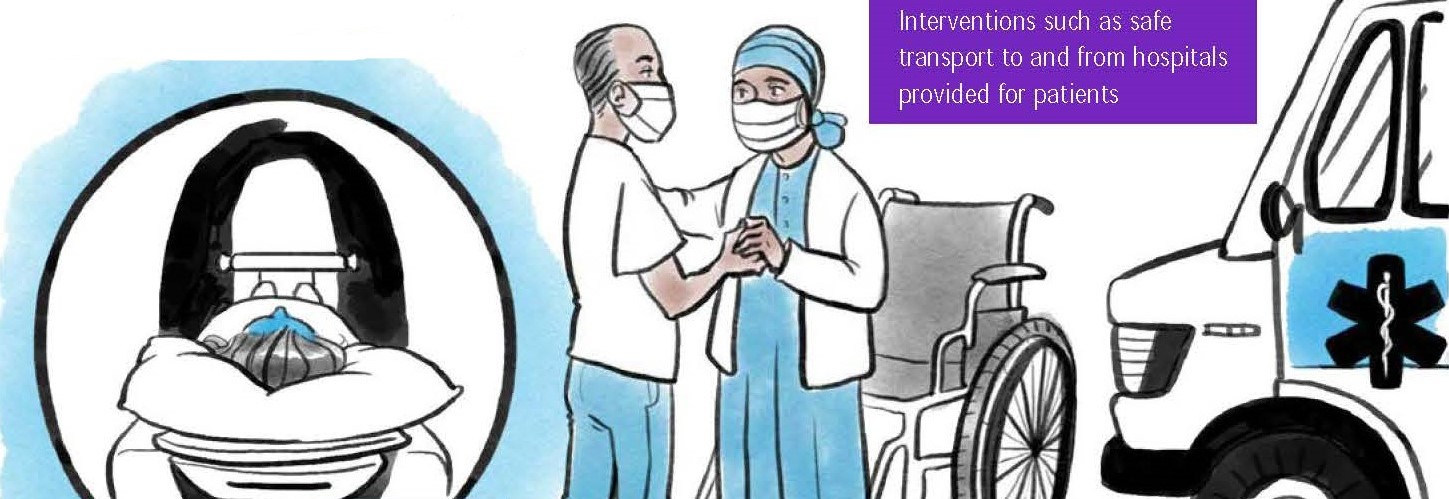
 The Ministry of Health collaborated with Moroccan scientists, the United Nations Multi-Partner Trust Fund and WHO throughout the pandemic to deliver uninterrupted cancer care services.
The Ministry of Health collaborated with Moroccan scientists, the United Nations Multi-Partner Trust Fund and WHO throughout the pandemic to deliver uninterrupted cancer care services.